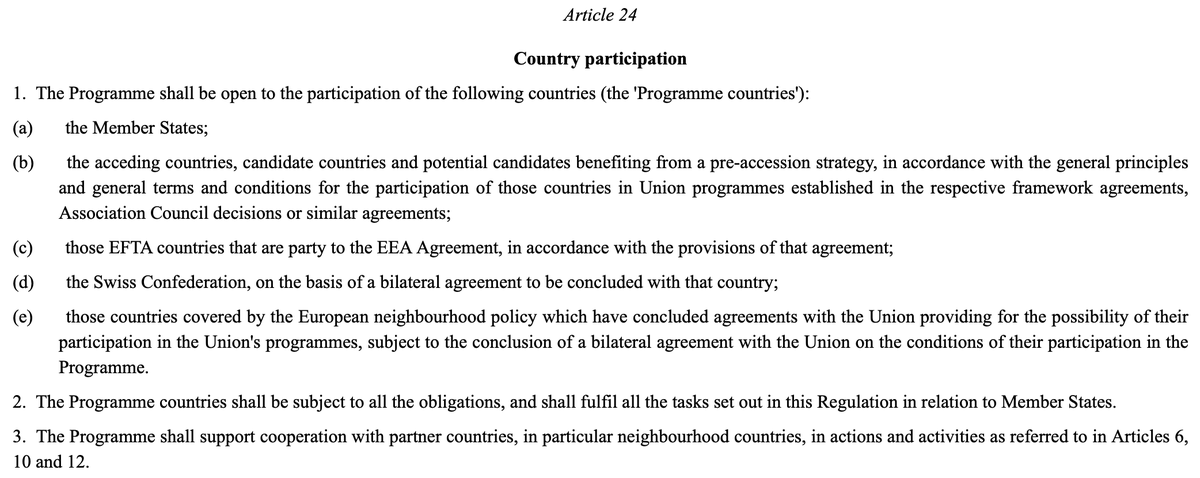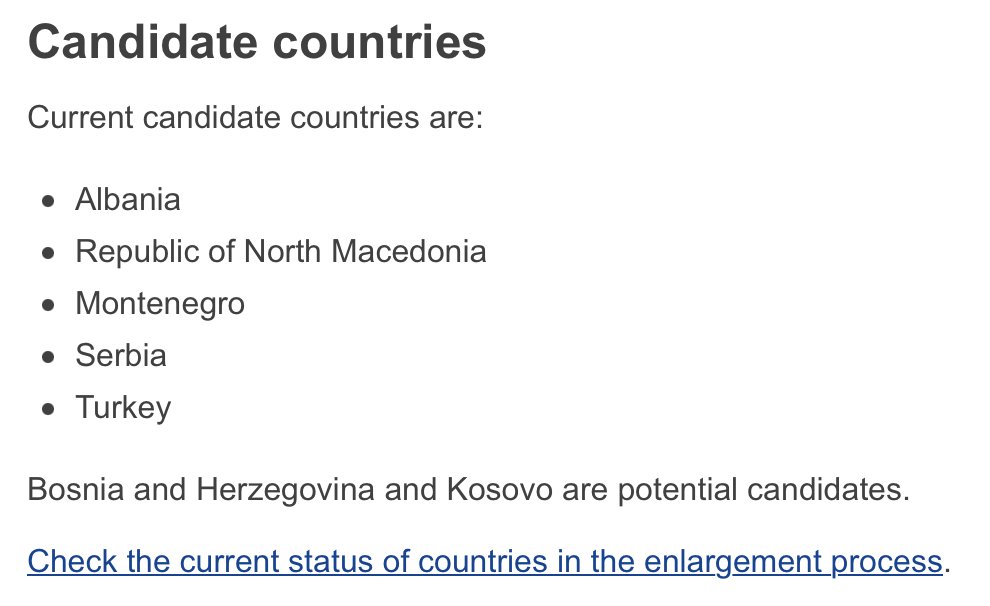
Lots more to say on #Erasmus and 'replacement' #turingscheme. Students in Northern Ireland may still have access thanks to the Irish government. What about Scotland or Wales? Some considerable barriers here to think about. /1 independent.ie/irish-news/nor…
Erasmus is an EU programme. It is established by a Regulation: a law covering the scope, how the programme works, funding etc over a 7 year period (2014-20). Higher Ed exchanges and Jean Monnet are the best known but also vocational training etc. /2 eur-lex.europa.eu/legal-content/…
Participation from non-EU states is possible (Art 24). Norway, Iceland, Liechtenstein are in the European Economic Area; Switzerland needs a bilateral agreement. I assume UK would need to be listed similarly to Switzerland in the new Regulation if it wanted to be in. /3 

The 'acceding countries, candidate countries and potential candidates' has a specific scope, and does include Kosovo (not yet recognised by all Member States). Turkey in particular has been very active in Erasmus. /4 

The European Neighbourhood Policy covers 16 neighbouring states in North Africa, Middle East (including Palestine) and Eastern Europe (except Russia) if a bilateral agreement concluded (yes for some, but not all at the moment). /5 ec.europa.eu/neighbourhood-…
The new proposed Regulation (from 2021) - also refers to 'other countries' in (Art 16(2) if a bilateral deal can be concluded. So little doubt there is still a route for the UK to participate on basis of a bilateral agreement in the future. /6 data.consilium.europa.eu/doc/document/S…
Since a bilateral, legal agreement is required, this reveals several barriers for Scotland or Wales in 'rejoining' Erasmus. The lack of competence of the devolved govts to enter international agreements is thus a major hurdle, as per @AileenMcHarg /7
https://twitter.com/AileenMcHarg/status/1342927480697585664?s=20
Even if this could be overcome, there would need to be a financial contribution by the Scottish govt (I defer to others on how this might work and whether permitted). There are some other barriers to full participation of Scotland/Wales that spring to mind... /8
Immigration is not devolved, therefore incoming students (a vital part of exchanges) would need to apply for UK student visas. These do exist already for non-EU exchanges (or non-EU citizens coming from EU unis) but cost £348 and involve paperwork. /9 gov.uk/student-visa
Scottish/Welsh uni students would also face immigration hurdles at their destination (which would vary from place to place). Potentially meaning lower take up of places (?) and administrative hassle, with uncertainty over rights and costs. /10
In short, I am doubtful that Scotland or Wales could rejoin Erasmus unless the UK govt was conclude a bilateral agreement on their behalf. This is unlikely I would have thought as it undermines the new 'UK wide' Turing scheme. /END
• • •
Missing some Tweet in this thread? You can try to
force a refresh


